43+ Questions To Ask At Graduate Job Programs
Kpare Jude Yinenti
You are at the end of your interview, feeling confident that you aced it – until the interviewer inevitably asks: "What questions do you have?" Now you are stuck because you didn’t prepare any questions to ask during a graduate program interview. The pressure is on:
- If you don't have any questions, you could come across as disinterested or lazy.
- If you ask the wrong questions, you risk blowing up everything since 32% of employers think that not asking good questions is the biggest mistake a candidate can make.
How do you handle this situation? This is what we will answer in our guide. We compiled an extensive list of 44 questions that you can ask the graduate job interviewer. We will also cover the factors you should consider when formulating them and discuss the benefits of asking these questions.
44 questions to ask a graduate program interviewer for choosing the right career
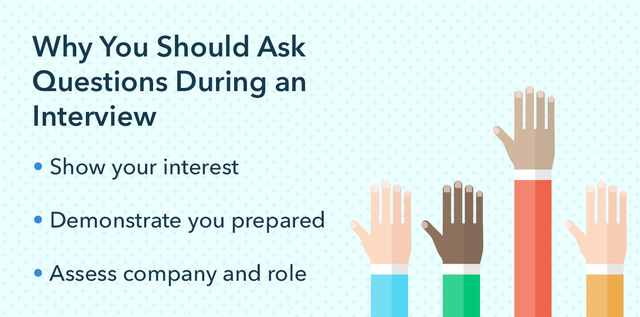
Here are 2 types of questions we recommend:
Questions like these will show your enthusiasm for the graduate job while also letting you see if the company or role is right for you.
Questions about the company & industry
Almost 80% of graduate employers want candidates to know about their organisation.
That is why asking questions about the organisation and the industry helps leave a good impression. Based on your research into the company and/or the industry, ask about the things that spark your curiosity. For example:
- Your company values [specific value] greatly, which resonates with me. Can you provide an example of how these values influence day-to-day operations or decision-making?
- I read that the company is planning to expand its operations in [region/country]. Can you tell me more about that and how this role might be involved in those plans?
- Your company has been recognised for its commitment to sustainability. Can you tell me about how interns might be able to participate in these initiatives?
- I noticed that the company recently announced a partnership with [specific organisation]. What sparked this collaboration, and what impact do you think it will have on the company's goals?
- I saw in the news that [industry event/trend] is happening. How is the company planning to respond to this?
- I noticed that several competitors in the industry have been investing heavily in [specific area]. How does the company differentiate itself in this regard and stay ahead of the competition?
- I read about the increasing importance of data analytics in driving business decisions across the industry. How is the company leveraging data and analytics to gain insights and make informed strategic choices?
- I read an industry report that highlighted the growing demand for [specific product/service]. How does the company plan to capitalise on this opportunity?
Red flags to look out for
- Data and analytics blind spots: If the company is not using data and analytics, it could indicate inefficiency or missed opportunities for strategic optimisation.
- Vague or evasive answers: If the interviewer struggles to provide concrete examples or details in response to your questions, it could indicate a lack of transparency or uncertainty within the organisation.
- Limited involvement in industry trends: If the company seems unaware or indifferent to major industry events, trends, or competitors' activities, it suggests a lack of adaptability or innovation within the organisation.
- Absence of development opportunities: If the interviewer cannot provide clear opportunities for interns or employees to participate in meaningful initiatives, it signals a lack of investment in employee growth and engagement.
Pro tips
- Remember, you don't have to ask about very specific details – the person interviewing you might not even know all the answers. The point is to show that you have enough interest in the company to come prepared with questions.
- Only ask questions about things you are actually interested in. The conversation will flow a lot more naturally that way. And trust us – interviewers can tell when you are faking it.
- If you are worried you won't remember your questions, write them down on a piece of paper to refer to at the end of the interview.
Hear from a recruiter
Feel free to write down your questions and when you get to the part of the interview where they ask you if you have any questions ... just say ... "I actually pre-prepared some questions on some things I'd really love to know. Would you mind if I pull out my notebook and refer to those questions?"
I think it is best to get all the answers that you need and also be able to articulate what it is that you're asking rather than trying to wing it. And I'm sure it's very unlikely that an interviewer would mark you down for pulling out notes to refresh your memory on the questions that you wanted to ask. – Early Careers Recruiter
Questions about the graduate job program
Remember that this is also a time for you to check if this graduate job is for you. Think about what you want.
What do you want out of this experience? What would make it worth it for you? What would make the employer a good fit for you in terms of your values, interests, and long-term goals?
Have a good, long think and you will naturally come up with some questions to ask. Check out our sample questions (and expert advice).
I. Support for learning & development
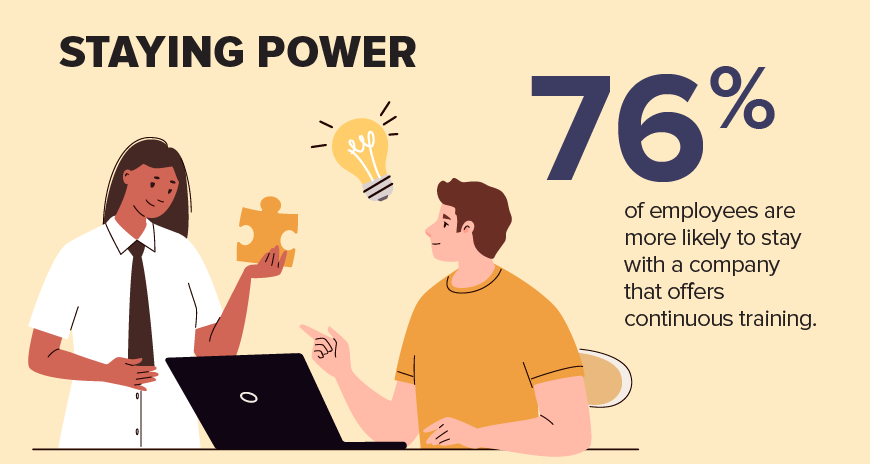
Questions in this category will help you gauge how invested the company is in your growth.
- How does the organisation facilitate continuous learning and growth for interns and grads?
- How does the company support interns’ or grads' professional development and ensure their success?
- Are there mentorship programs or professional development initiatives available to help interns and grads in their career progression?
- Are there any training programs or workshops specifically designed for interns and grads to provide academic support and bridge skills and knowledge gaps?
Red flags to look out for
- Lack of mentorship: If the company doesn't provide specific examples of mentorship opportunities or programs, like pairing newcomers with experienced professionals or offering structured guidance, it indicates a lack of investment in your professional growth.
- Absence of dedicated professional development opportunities: If the company doesn't highlight any initiatives like workshops, training sessions, or resources aimed at enhancing interns' skills and knowledge, it may imply limited support for your career growth.
- Limited learning opportunities: If the company does not have clear processes or programs in place to facilitate continuous learning and growth for interns, or if they cannot provide specific examples of how they support interns' skill development, it may indicate a lack of emphasis on nurturing interns' professional growth.
II. Feedback mechanisms & performance evaluation
Understanding how a company provides feedback to its employees helps you understand the support and opportunities available for professional growth within the organisation.
- How does the company provide feedback to interns or graduates on their performance?
- Are there regular performance evaluations or check-ins to track progress and address areas for improvement?
- Can you provide insights into how performance is evaluated and how interns or graduates can excel in their roles?
- Can you provide examples of how feedback from evaluations has been used to support interns or graduates in their professional growth and development within the company?
Red flags to look out for
- Vague evaluation criteria: If the criteria used for performance evaluation are unclear or inconsistent, it can cause confusion among employees about expectations and hinder their ability to gauge their progress and areas for improvement.
- Absence of growth opportunities: If the feedback mechanisms mainly focus on pointing out weaknesses without offering guidance or opportunities for improvement, it suggests a lack of investment in interns' growth and development within the company.
- Lack of regular feedback: If the company does not have a clear system in place for providing regular feedback to interns or does not prioritise feedback as part of the performance evaluation process, it indicates less support for interns' professional development.
III. Work-life balance & flexibility

According to a study by Deloitte, burnout is the top reason why Gen Zs left their employers over the last 2 years. Ask these questions to assess if the company values your well-being.
- How does the company prioritise work-life balance for interns?
- Are there any flexible work arrangements or remote work options available?
- What measures does the organisation have in place to prevent intern burnout or excessive workload?
Red flags to look out for
- Lack of emphasis on work-life balance: If the company doesn't provide a clear plan for maintaining work-life balance and mentions situations where interns are expected to work overtime or on weekends, it shows a disregard for interns' well-being.
- Inadequate workload management systems: If the company fails to mention any specific measures or programs to address burnout or workload management – or worse if they seem dismissive of these concerns – it indicates a lack of support for interns' mental health and well-being.
IV. Career progression
If you are going to invest your time in a job, you might as well find out what you will get out of it in the long run.
- Can you share what percentage of interns typically transition into full-time positions with the organisation?
- Are there clear pathways for career advancement within the organisation beyond the graduate program?
- How does the organisation support grads in exploring and pursuing future employment opportunities?
- What is it about this company that led you to work here, and how have you been able to grow?
- Where do people who have held this position typically end up next?
Red flags to look out for
- Lack of clear career advancement pathways: If the organisation cannot provide information about clear pathways for career advancement, it suggests a lack of structured opportunities to progress and grow within the company.
- Limited internal mobility: If the interviewer cannot provide instances of employees transitioning between different departments or roles, it indicates a lack of flexibility or opportunities for career growth beyond the initial position.
- High turnover rate: If there is a noticeable trend of employees leaving the company shortly after completing the graduate program without clear reasons, it suggests dissatisfaction with career progression options or a lack of support for professional development.
V. Expectations & responsibilities
While some students thrive on tackling specific tasks daily, others crave variety. Asking these questions will help you know what to expect on the job.
- Are grads assigned to a single project throughout their program, or do they have the chance to work on multiple projects concurrently?
- What does a typical day in the life of an intern or grad in this role look like?
- What challenges can I expect to face in this role or what challenges were faced by past interns or grads in this position?
- Can you provide examples of the types of projects and tasks interns and grads have worked on in the past in this role?
Red flags to look out for
- Mundane or repetitive tasks: If the description of a typical day mainly involves repetitive tasks without much room for creativity or growth, it indicates a lack of engaging and meaningful work.
- Lack of clear examples of past projects: If the interviewer is unable to provide clear examples of the types of projects and tasks grads have worked on in the past, it suggests a lack of clarity or uncertainty regarding the nature of the experience.
- Limited project variety: If interns or grads are assigned to a single project throughout their time at the company without the opportunity to work on different projects concurrently, it may suggest a lack of exposure to diverse experiences and limited opportunities for skill development.
VI. Values
Finding a graduate program that aligns with your values and contributes to a greater purpose can make your experience more fulfilling.
- How would you describe the ideal candidate for this role? What qualities or skills should they possess?
- What is different about working here than anywhere else you have worked?
- What are some tips to stand out, if I get the position?
- What do you love most about working in this company? (Note: While this question may sound out of place, it is actually a unique way of showing boldness and curiosity. It lets you gain insights into the company culture through the interviewer's perspective.)
Red flags to look out for
- Misalignment of values: If the interviewer's description of the ideal candidate for the role does not align with your personal values or seems to prioritise qualities that differ from your own, it indicates a potential mismatch in cultural fit.
- Lack of specific tips or guidance: If the interviewer can’t provide specific advice on how to stand out and succeed in the position, it may suggest a lack of clarity or experience supporting interns.
- Lack of enthusiasm: If the interviewer struggles to explain what they love most about working in the company or fails to convey genuine enthusiasm, it shows a lack of positive company culture or employee satisfaction.
VII. Corporate social responsibility & sustainability initiatives
Go beyond greenwashing and assess the company's concrete actions on sustainability and social responsibility through these questions.
- How does the company integrate sustainability practices into its daily operations and decision-making processes?
- Are there opportunities for interns to get involved in sustainability-related projects or initiatives during their tenure with the company?
- Can you provide examples of specific corporate social responsibility projects or initiatives that the company has undertaken in the past year?
- How does the company measure the impact of its corporate social responsibility efforts, and are there any goals or targets in place for future sustainability initiatives?
Red flags to look out for
- Lack of transparency: If the interviewer is hesitant to provide information or examples of its sustainability initiatives or fails to communicate its commitment to corporate social responsibility, it signals a lack of genuine engagement or prioritisation of these efforts.
- Minimal investment in sustainability: If the company's sustainability initiatives appear superficial or primarily focused on PR rather than meaningful impact, it suggests a lack of genuine commitment to environmental or social responsibility.
- Lack of integration in business strategy: If sustainability initiatives are treated as separate from the company's core business strategy or if they are not embedded into key decision-making processes, it indicates a lack of genuine commitment to sustainability as a fundamental aspect of the company's operations.
VIII. Compensation
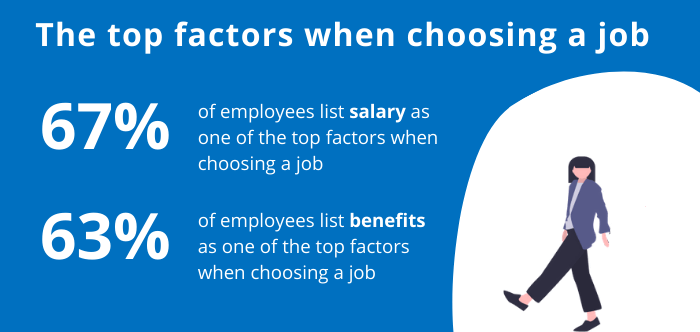
Money matters – we all know that. However, we don't recommend asking questions about salary during your first interview. It is better to show interest in the organisation and the field and assess fit in other ways. Plus, it is often too early for an organisation to know how much they would value you.
However, as you move forward in the interview process, it is a good idea to start asking about salary and benefits. This helps you get a clear picture of what the job offers and whether it provides financial support for your needs. Plus, it shows the company that you are serious about considering the role long-term. Here are a few questions you can ask.
- Could you provide insights into the compensation structure and any additional benefits? (For example, are interns paid a stipend, an hourly rate, or a salary?)
- How does the company recognise and reward grads who consistently go above and beyond their responsibilities?
- What is the salary progression like as you move up the ranks and how is performance evaluated?
Red flags to look out for
- Lack of transparency: If the interviewer hesitates to provide clear information about the compensation structure and additional benefits, it indicates a lack of transparency within the company regarding financial matters.
- Limited recognition and rewards: If the company doesn't have a clear process for recognising and rewarding employees who exceed expectations, it suggests a lack of appreciation for hard work and dedication.
- Unclear salary progression and performance evaluation: If the interviewer struggles to provide a clear path for salary progression and how performance is evaluated, it could signal a lack of structured career development opportunities within the organisation.
IX. Other questions you might ask
As the interview comes to a close, you might find yourself with lingering questions about the hiring process or the job itself.
- What is the timeline for deciding on this graduate program?
- What are the next steps in this process?
- Is there anything I said during the interview you want me to expand on?
- Based on our discussion, do you have any specific concerns about how my skills or experience align with the requirements of the position?
- (If you are an international student) I just wanted to double-check if international students are eligible for this graduate program.
Hear from a recruiter
I always suggest that students sit and think about what they want to know about the role. What is it about the role that is of interest to you? Or where are there some question marks for you? Rather than looking at it as an exercise of, "Oh, I have to ask a question," let's use this as an opportunity to actually unpack whether this role is right for you. – Early Careers Recruiter
What next?
After your interview, it is important to consider what comes next to keep your momentum going in your job search journey. Firstly, consider sending a thank-you email to the interviewer expressing your gratitude for the opportunity to interview and reiterating your interest in the position. This simple gesture only shows appreciation and also leaves a positive impression.
Following up on the status of your application is another crucial step. While you don't want to bombard the hiring manager with constant inquiries, it is perfectly acceptable to reach out after a reasonable timeframe, typically a week or 2 after the interview. This shows your continued interest in the role and allows you to stay informed about your application progress.
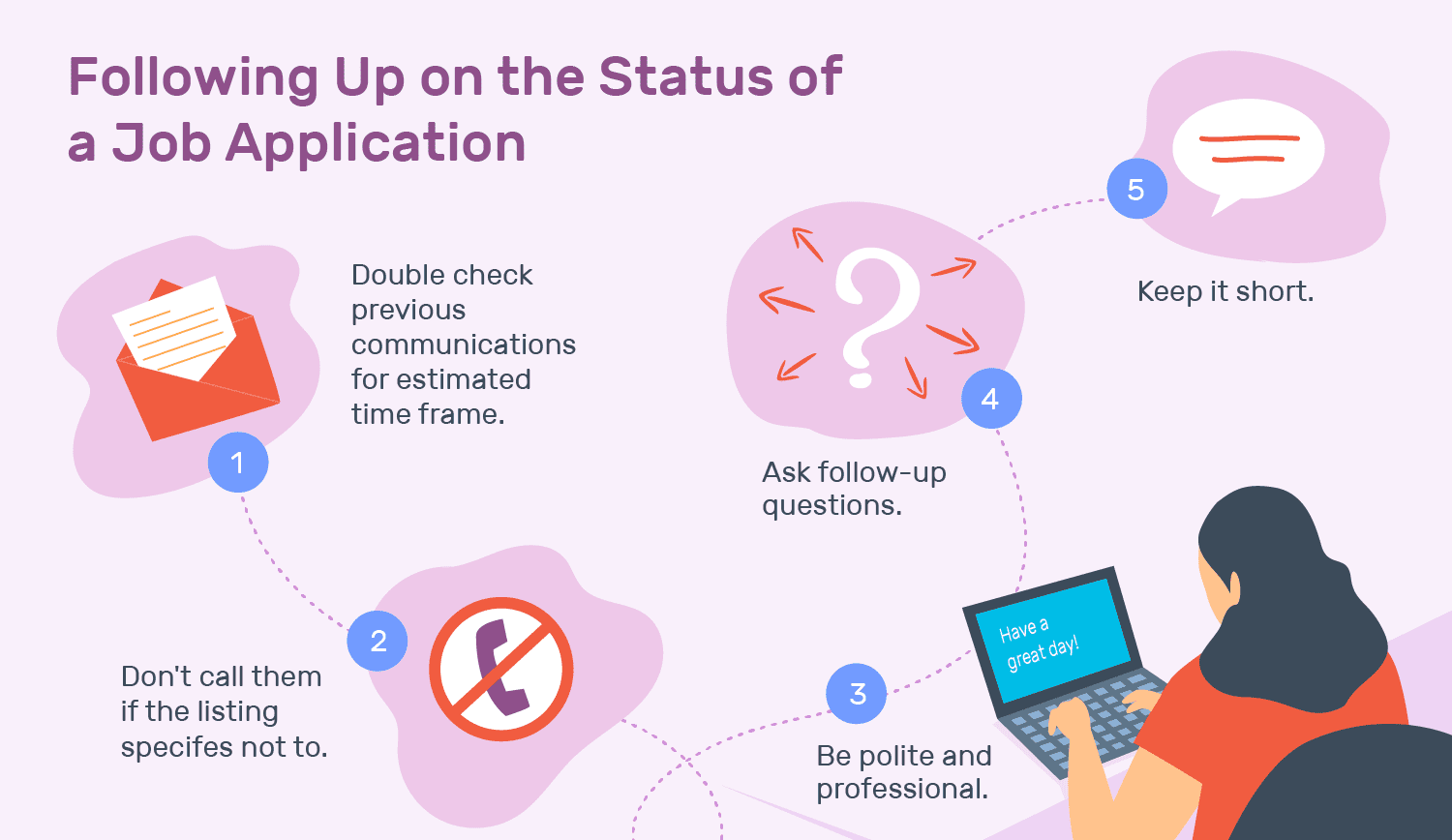
In the meantime, don't put all your eggs in one basket. Keep exploring internship and job opportunities on relevant platforms like Prosple, company websites, and professional networking sites like LinkedIn.
Networking efforts can also pay off significantly. Reach out to your graduate school alumni, faculty, and professionals in your field to learn about potential opportunities and gain valuable insights to make an informed decision.
Remember to keep your career goals in mind throughout this process. Every interaction, whether it is sending a thank-you email or attending a networking event, should align with your long-term objectives. Stay proactive and engaged and you will be better equipped to make informed decisions that propel you towards your desired career path.
How can you prepare questions to ask in a graduate job program interview?
For graduate students, preparing questions for a graduate job program interview is crucial for showing interest and suitability for the role. Here's a breakdown of how to do it:
1. Research the company and its culture
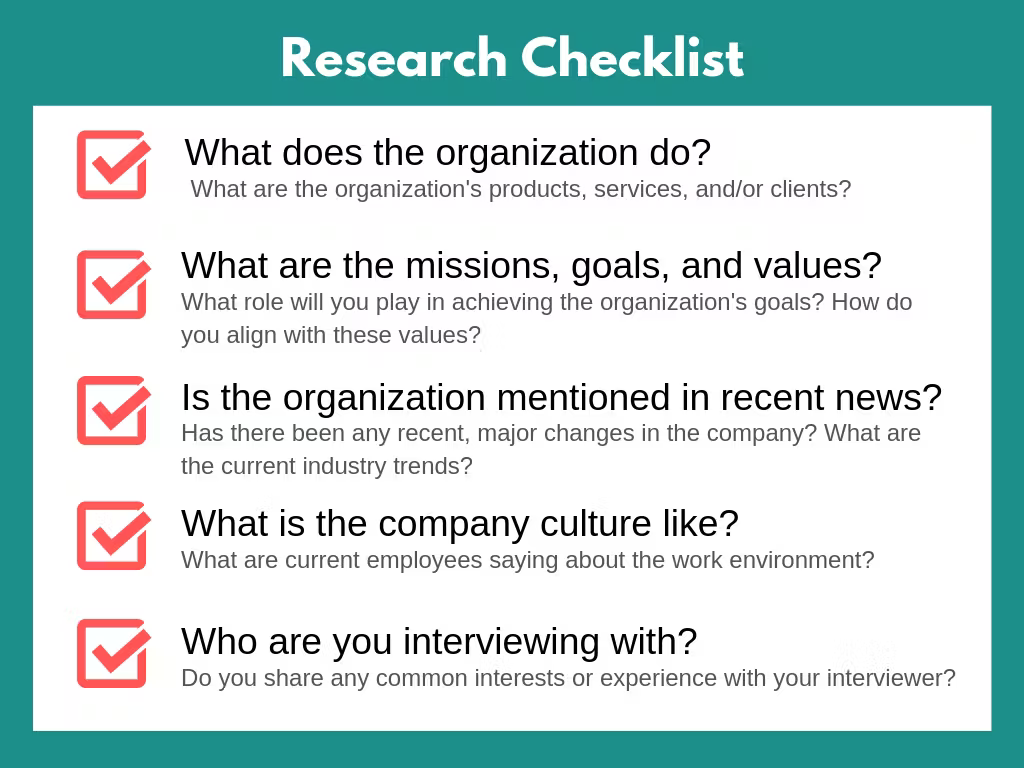
Start by looking into the company's background. Know its history, mission, values, and recent achievements. Understand its culture by exploring its website, social media presence, and any press releases or news articles about the company.
Look for information on the company's work environment, team dynamics, and any notable initiatives they are involved in. This research helps you gauge if the graduate program is right for you and if you can see yourself thriving in that environment.
2. Understand the specifics of the graduate job program
Once you are familiar with the company, focus on understanding the graduate job program you are applying for. Read through the job description thoroughly to know the responsibilities, requirements, and expectations. Pay attention to any specific skills or experiences they are looking for in candidates.
Additionally, try to find out more about the program structure, like the duration, training opportunities, mentorship availability, and potential career progression paths. This understanding will help you customise your questions to get deeper insights into what the program includes and how it aligns with your career goals.
3. Identify areas where you need more information
As you conduct your research, you will likely come across aspects of the company or the graduate program that you would like to know more about. These could be related to the company's future goals, recent projects, team dynamics, training opportunities, or the day-to-day responsibilities of the role.
Take note of these areas and formulate questions around them. For example, if you are interested in the company's approach to innovation, ask them about recent product developments or how they promote a culture of creativity and experimentation.
4. Find questions to show your genuine interest
Brainstorm questions that show your curiosity and enthusiasm about the role and the company. Consider what aspects of the job program excite you the most and what information would help you better understand if it is the right fit.
For example, you can inquire about specific projects you would be involved in, opportunities for professional development, or the company's approach to mentorship. Authentic questions showcase your interest and also provide you with the information you need to make an informed decision.
5. Prioritise questions based on their importance and clarity
Not all questions carry the same weight so prioritise them based on what matters most to you. Consider the key criteria you are evaluating the job program against, like career advancement opportunities, work-life balance, or alignment with your long-term goals.
Focus on questions that directly address these criteria and ensure they are clear and concise for a meaningful discussion during the interview.
6. Practice asking your questions aloud
It is one thing to have questions prepared but it is another to articulate them effectively during the interview. Practice asking your questions out loud to yourself or with a friend or family member. You can also ask them to simulate the interview scenario and provide feedback on your questions and presentation style.
This will help you refine your wording, ensure your questions make sense, and boost your confidence when it comes time to ask them during the interview.
7. Practice active listening during the interview to generate relevant follow-up questions
During the interview, listen attentively to the interviewer's responses to your questions. This provides opportunities to generate follow-up questions based on their answers. Pay attention to any points they elaborate on or areas where you would like more clarification.
Asking thoughtful follow-up questions deepens your understanding of the job program and shows you can actively engage in dialogue and gather relevant information.
Why it is important to ask questions in a graduate job program interview?
While answering questions confidently demonstrates your knowledge and abilities, asking well-thought-out questions can significantly enhance your impression. Here's how:
A. Shows genuine interest and enthusiasm
When you ask questions during an interview, it demonstrates to the interviewer that you are genuinely interested in the opportunity. It shows that you have taken the time to research the company and the job program and that you are eager to learn more. This enthusiasm can leave a positive impression on the interviewer and set you apart from other candidates.
B. Highlights critical thinking abilities
Your questions reveal how you process information and engage with the presented details. Well-formulated inquiries go beyond basic confirmations, probing deeper into specific aspects of the program, its challenges, and opportunities. This showcases your ability to think critically, analyse information, and identify areas for further exploration.
C. Provides clarification on job responsibilities
Asking questions during the interview gives you a clearer understanding of the job responsibilities and expectations. It is an opportunity to go deeper into specific aspects of the role that may not have been fully explained in the job description. This way, you can ensure that you have a comprehensive understanding of what the job requires.
D. Helps you assess if the job aligns with your career goals
Job descriptions can paint a broad picture but you need details. Questions during the interview give you insights into the specifics of the job role, the company culture, and the overall work environment. This information allows you to evaluate whether the job aligns with your career aspirations and long-term goals.
For instance, if you value research opportunities as part of your career trajectory, asking about how many hours are typically dedicated to research projects within the company can help you determine if the role meets your expectations and aligns with your career path.
E. Makes you stand out from other candidates
Everyone answers the standard questions, but few go beyond. When you ask thoughtful, well-researched questions, you stand out from the pack. It shows the interviewer that you have done your homework, that you are genuinely interested in the opportunity, and that you are eager to learn more.
This leaves a lasting impression and sets you apart from candidates who may not take the time to ask questions.
F. Turns the interview into a 2-way conversation
While interviews are typically seen as opportunities for the interviewer to assess the candidate, asking questions turns the interaction into a 2-way conversation. This shift lets you actively engage with the interviewer and get the information that might not be available otherwise.
This helps you make an informed decision and allows you to assess if the company's values and culture resonate with you.
Prosple: Your personalised gateway to Australian graduate job opportunities
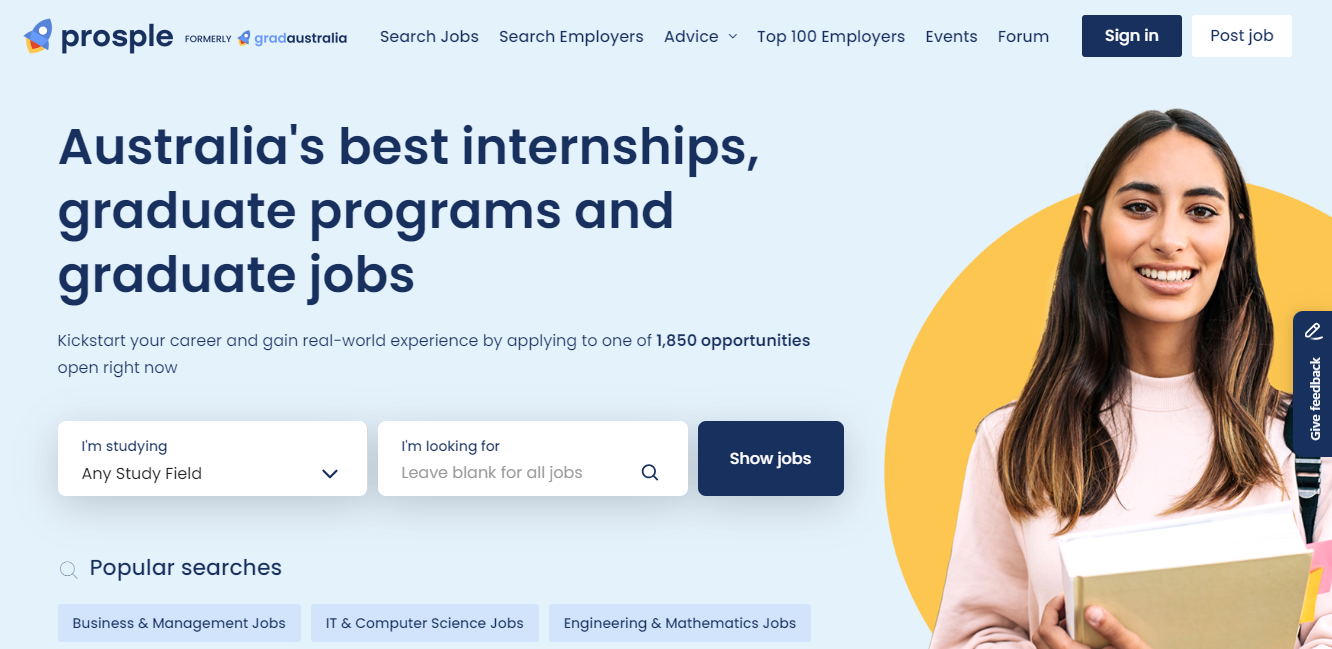
Prosple is a platform designed to help university students and graduates in Australia connect with graduate jobs and internships. You can explore different job openings on our platform. Each job listing provides clear details about the role, qualifications, and information about the company offering the job.
Prosple makes applying to multiple jobs easier. You can use a single profile or resume to apply to several opportunities, streamlining the application process for you. Let’s take a look at its key features:
- Prosple provides curated job suggestions based on your preferences, ensuring you see relevant positions that match your aspirations.
- You can navigate the platform with ease. Use advanced search filters to find jobs by industry, location, work rights, and desired program.
- Prosple's smart algorithm considers your skills, interests, and academic background to suggest opportunities that truly align with your profile.
- Set up customised alerts to get notified instantly when new positions matching your criteria are posted, so you can be among the first to apply.
- Prosples offers a wealth of information and expert advice on career planning, resume and cover letter writing, and job search strategies to speed up your overall career journey.
- Get complete insights into potential employers before you apply. Prosple provides detailed company profiles, including information about their culture, values, and financial aid programs.
- Prosple offers a vast pool of graduate jobs and internships from Australia's most respected employers across diverse industries. You can access exclusive positions directly from renowned companies and industry associations that you might not find elsewhere.
Conclusion
You have already made a significant achievement in landing an interview. But to make the most of it, you should be prepared with questions to ask a graduate program interviewer. It is a 2-way street where both sides get to ask questions and learn. So take a moment, review those questions, and get ready to make this interview count. After all, it is your future on the line.
If you are still looking for graduate jobs and internships in Australia, Prosple connects you with opportunities from top employers across various industries. With advanced features and a vast library of valuable resources and career advice, it is your one-stop shop for launching your post-graduate journey in Australia. Register now to find thousands of grad jobs on our website.